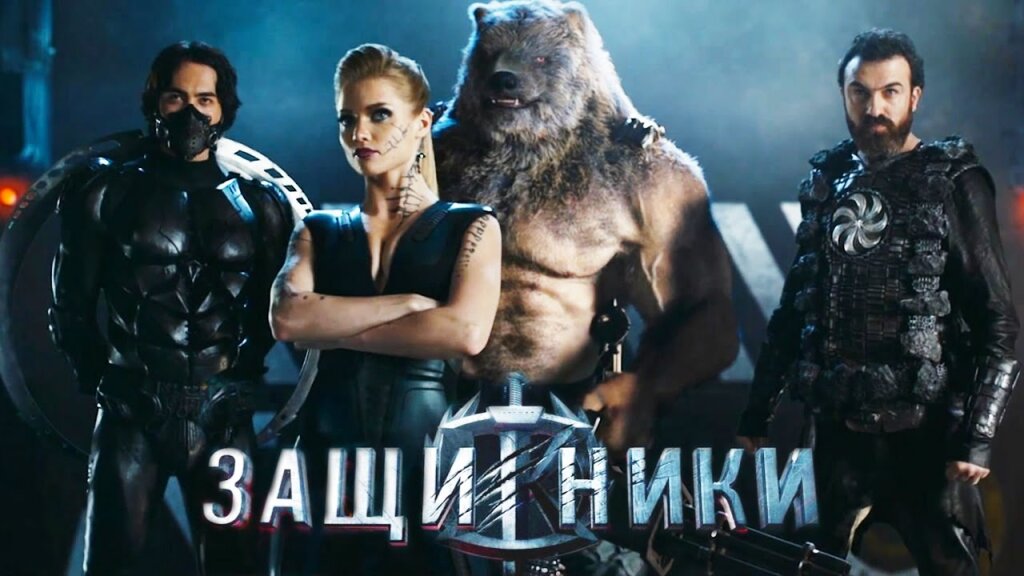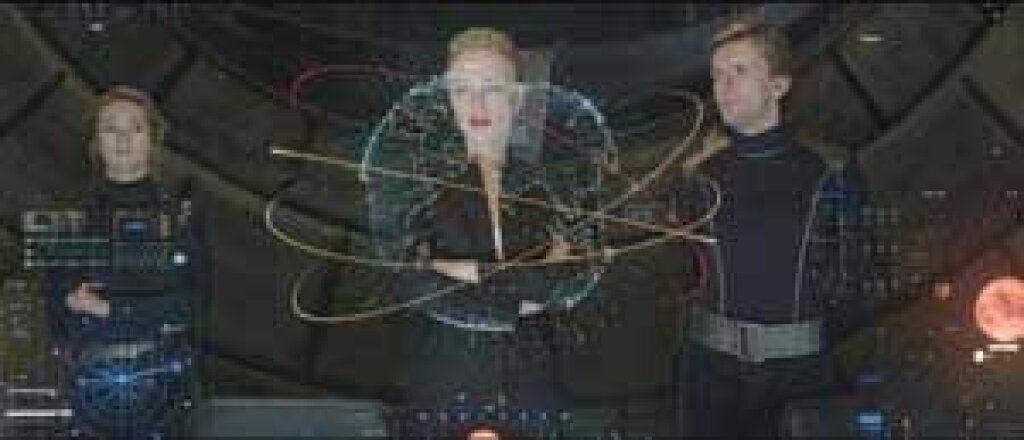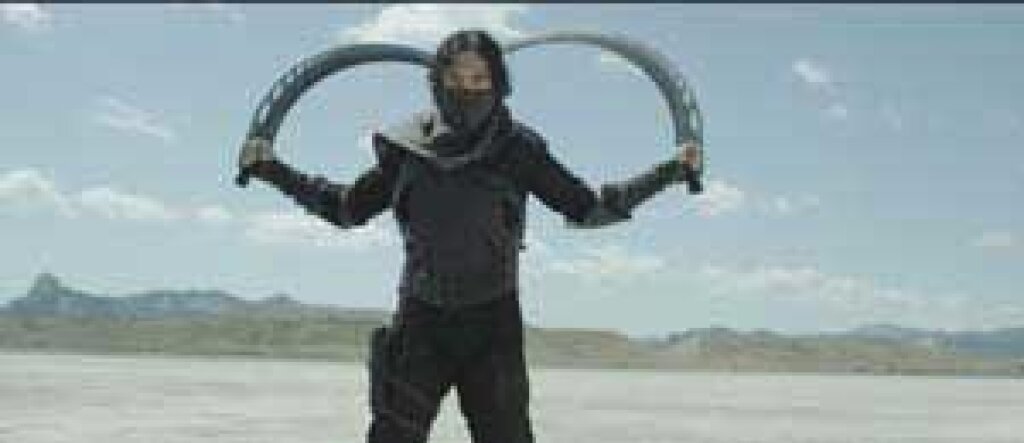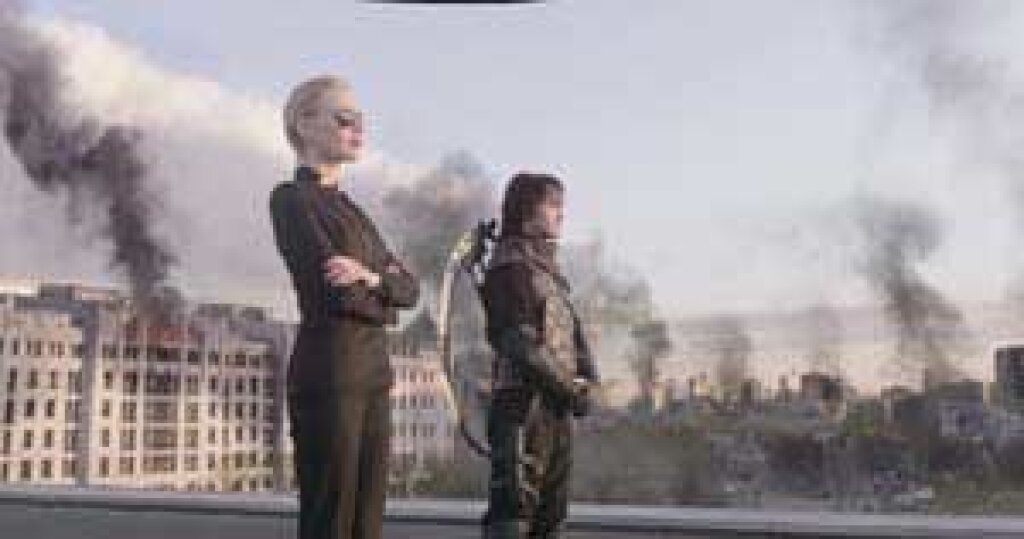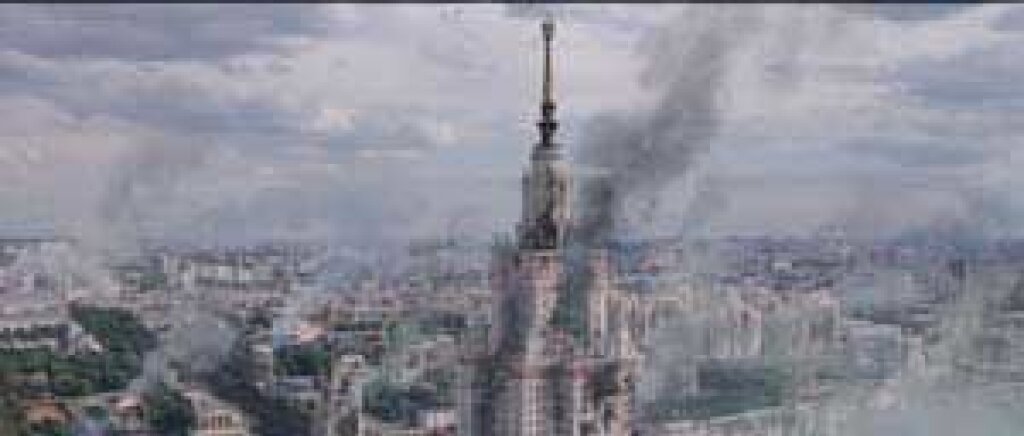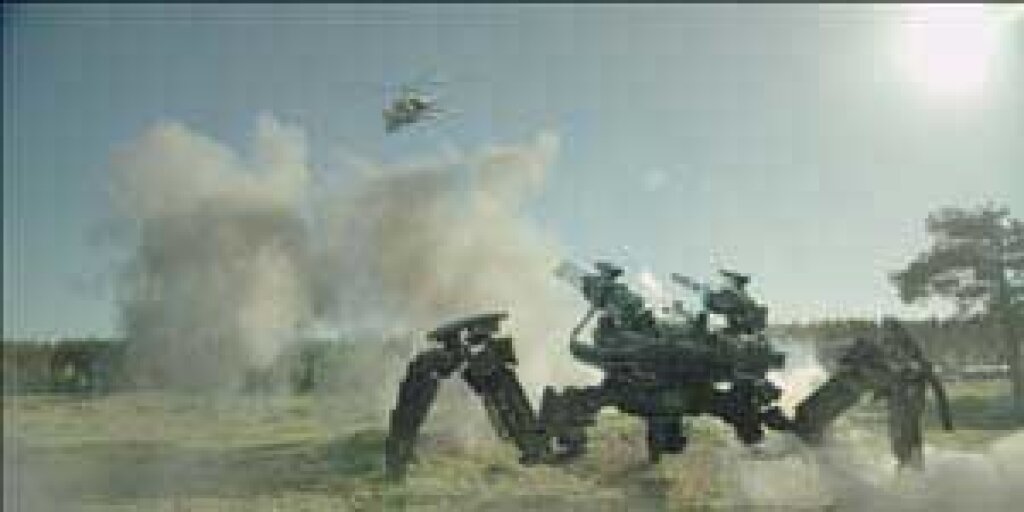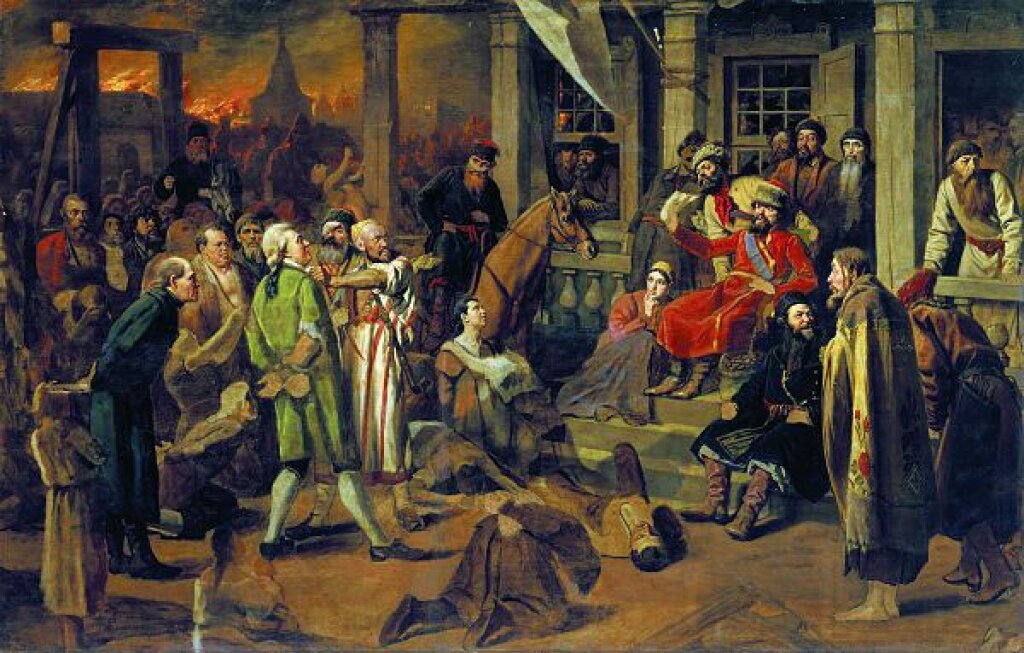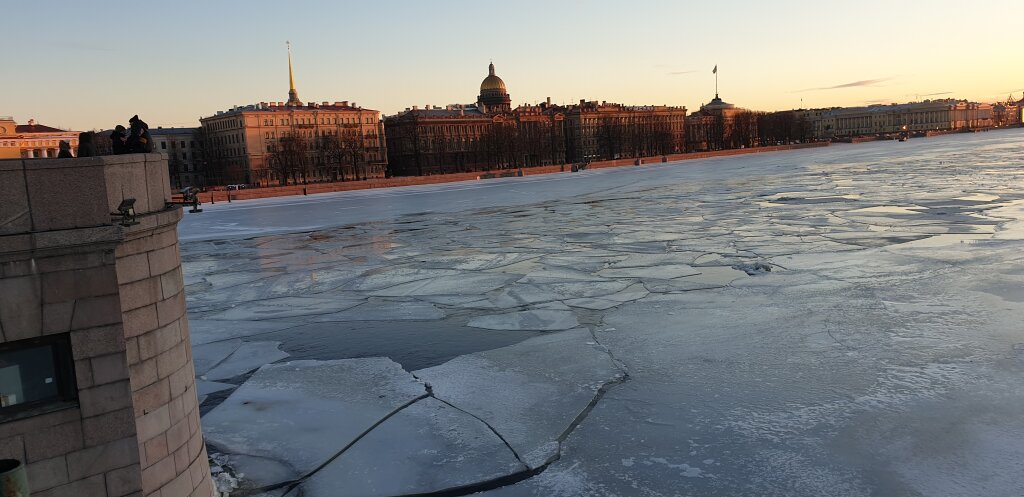The following piece by José Alaniz, Associate Professor of Slavic Languages and Literatures in the Department of Comparative Literature, Cinema & Media at the University of Washington, Seattle, is reposted from KinoKultura.
The day-of-release flashmob promotion by the director may have backfired spectacularly (“SMM-proval goda”); it went down in flames at the box office; bankrupting its producers and leading to a Cinema Foundation lawsuit (“Fond kino”), but Sarik Andreasian’s Guardians can at least point to one indelible achievement. At a time of profound social division and national discord, it managed to unite Russians into one harmonious voice. Everybody, from critics to its rapidly dwindling audiences, came together in their loathing of the movie’s every frame, making it the worst-reviewed Russian film of 2017. Congratulations.
The superhero genre has, of course, grown to dominate the blockbuster market in the US and abroad since the turn of the century, with routine global receipts of over $1 billion for the biggest franchises.[1] In addition to their mainstream success, the Avengers, Captain America, Iron Man and Batman series, as well as this year’s surprise hit Wonder Woman (the first in the genre directed by a woman, Patty Jenkins), have earned critical accolades[2] for material that often delves into such weighty matters as government surveillance; the reach of the military industrial complex; the pitfalls of masculinity; the moral gray zones of vigilantism; and the new horizons opened by modernity and the post-human.[3] These matters have preoccupied the genre since its launch in US comic books in the late 1930s, even spawning occasional moral panics.[4] Moreover, through the decades the superhero canon has accumulated an enormous backlog of stories and characters for filmmakers to draw upon.[5]
Given that sort of commercial/critical draw, a Russian superhero film seemed only a matter of time. Works like the Night Watchseries (dir. Timur Bekmambetov, 2004–2006) and Black Lightning (Chernaia molniia, dir. Aleksandr Voitinskii, 2009)[6] laid the groundwork, especially in terms of sophisticated special effects and world-building involved. Audiences grown familiar with US superheroes onscreen would in all likelihood respond to homegrown versions. Even the nascent Russian comics industry had launched its own superhero series, in theory creating a built-in (if small) fan base for such films. One of those domestic heroes, the publisher Bubble’s Major Grom, would appear in a short film from Bubble Studios in early 2017, earning over 4.5 million views on YouTube to date.[7]
The director to undertake the country’s initial feature-length foray into the genre, moreover, boasted a relevant filmography, one replete with Hollywoodesque genre material: the family comedy This is Also Karloson (2012), the disaster movie Earthquake (2016), etc. Who better than Sarik Andreasian, working with producer brother Gevond Andreasian and their Enjoy Movies production company, to challenge Hollywood’s hegemony and debut a new, domestic superhero franchise? The government’s Cinema Foundation stepped forward with an advance of some 51 million rubles.[8]
The warning signs eventually appeared. A promotional campaign launched in August, 2016, with a rather cheap-looking trailer, especially in scenes involving a battling man-bear wielding a Gatling gun. The producers picked an official holiday, Defender of the Fatherland Day, for Guardians’ release, on February 23. Andreasian launched his hashtag, #IamgoingtoGuardians. Cinemas saw a Russian superhero team at last.
Most of them wished they could unsee it.
Anyone who reviews films for a living knows that bad reviews are by far the most fun to write. Russian critics of Guardians—unanimous in their utter contempt for an ill-conceived, badly-made, inanely-executed piece of corporate dreck—were unsparing, many of them clearly taking perverse relish in their hatchet jobs. In fact, spending a period equal to Guardians’ running time reading the Russian press on Andreasian’s disaster not only makes for a much more entertaining, rewarding and enlightening use of one’s time than watching the film itself—it indeed makes that time go much, much faster.
For maximum enjoyment, though, the reader should at least know the bare rudiments of the plot. The film starts promisingly enough: a credit sequence over Iuliia Tereshchenko’s slow-tempo theme song (in English) briskly recounts the main heroes’ origin stories: they are the fruit of the Patriot project, Cold War scientific experiments to counter international and supernatural threats. The subjects, dubbed Guardians, hail from across the USSR: Ler (Sebastien Sisak), a taciturn Armenian who can control earth and rocks; Khan (Sanzhar Madi), a taciturn Kazakh who wields lethal blades and moves so dizzyingly fast he seems to teleport; Ursus (Anton Pampushniy), a taciturn Russian were-bear who can control the degree of his transformations; and Ksenia (Alina Lanina), a less taciturn Ukrainian who can grow invisible in water and does not feel temperature. (They all look so young because the experiments made them immortal.) Their creator, the renegade super-powered scientist August Kuratov (Stanislav Shirin), returns after a long absence to seize control of Russian army equipment (which obeys his will), rip the Ostankino Tower from its base and transport it to the Moskva-City region, where he constructs a massive antennae array to take over the world’s satellites, including weaponized Soviet tech still in orbit. The Ministry of Defense orders Major Elena Aleksandrovna (Valeriia Shkirando), a sort of taciturn blonde Nick Fury, to find the scattered Guardians and neutralize Kuratov along with his clone army. One by one, they initially refuse her or her delegate, only to change their minds—usually within less than a minute.
Andreasian strings together this depressingly sordid business with flat, wooden dialogue and glaring plot holes; second-rate CGI effects (Ursus looks clunkier than most video game avatars); a deadly serious tone which saps any possibility of real fun; and an endless pastiche of clichés.[9] Toppled Ostankino Tower: Day Watch; Kuratov’s army: Star Wars Episode II: Attack of the Clones(dir. George Lucas, USA, 2002); Kuratov’s ridiculous over-muscled appearance: a blend of the Toxic Avenger, Dr Octopus, Kenneth Branagh’s Frankenstein monster, Lex Luthor and Darth Vader—he even chokes a traitorous Russian general single-handedly; Kuratov breaking Ler’s spine on his knee: Bane doing the same to Batman in The Dark Knight Rises (dir. Christopher Nolan, USA, 2012). Ad nauseum.
Guardians had potential as a post-Soviet fable that better filmmakers could have tapped. A competent screenwriter, for example, might have fruitfully explored the dramatic possibilities and geopolitical implications of a multi-ethnic team comprised of people from the former Soviet empire, whose very bodies bear the scarring legacy of Soviet power. Andreasian? He has Kseniia mention she can use her powers to make borscht.
As noted, the Russian critics held nothing back, giving full vent to their disdain. In reading their gleeful demolition work, one intuits the old truth that behind every negative review, no matter how cleverly written, lies both a brutal sadism and a genuine cri de coeurover two hours of one’s life wasted, robbed, never to come back. Sometimes revenge is a dish best served hot.
In truth, a sense of sulky futility pervades many of these assessments. The reviewer for Geek City, who renames the film The Despicable Four, opines: “Right from the announcement, everyone understood that nothing good would come of this venture. We had only one demand: don’t make it too awful. But they couldn’t pull it off. Presenting: the latest film to make you feel ashamed of Russian cinema” (Skorodumov 2017).
National shame and humiliation do figure prominently in their excoriations: “As for the plot and technology, Andreasian has for quite a while now been copying it from ‘made in ottuda,’ [10] and pretty successfully, too. This is not at all the verdict on big Russian cinema. This is its diagnosis: chronic ‘just in case,’ metastasized into ‘just like they do it’ syndrome, terminal stage” (Dudik 2017); “The film has no interesting characters, they’re all dull and derivative to the point of disgrace (and the villain is just laughable) […] Guardians is just mediocre garbage, carelessly put together for the sake of a buck, and a disgrace to Russian cinema” (Skorodumov 2017). Others could not even muster that: “All in all, this is a bland and absolutely empty hack job, made with our taxes, incapable of rousing any sort of strong emotions, not even hatred or shame” (Trofimov 2017).
Many display a knowing comfort level with cinematic superhero conventions in the age of Marvel: “There’s a legend that Guardianshas a post-credits scene. But no one has seen it, because no one has yet managed to sit all the way through the film” (Litovchenko 2017); “The producers read somewhere that every superhero has to have an inner conflict. So they met this demand as neatly as you please: every ten minutes one of the Guardians simply delivers a long, tragic monologue – then clams up for the rest of the film” (“Zashchitniki Sarika Andreasiana”, 2017).
Finally, most warn off prospective viewers in the name of preserving their sense of national pride. Some go even further:
In fact, you could toss out any scene from the film—say, every other one—and lose nothing. Only the running time would change. On the plus side, at least your eyes and ears would bleed less from the horribly directed battle scenes, from the nauseating special effects, from the clueless, tasteless design and screenwriting, from the head-spinningly stupid dialogue and unbelievably weak acting of all the actors without exception, which induces premature birth even in women who are not pregnant, and even in those who are not women.[11] No matter where you spit, or whatever part of this thing you poke at with a stick—it’s all long dead and reeking (Litovchenko 2017).
Such extended, extravagant carnage over a corpse—reminiscent of the bloody conclusion to Euripides’ The Bacchae—left Guardians’ precious few supporters only to shiver in sullen rage. Like cman3003, who posted in an online forum: “Honestly, I don’t care, but people—our film, made for so little, ended up almost the equal of the best Hollywood blockbusters, at least in its effects. Please, let’s assess it objectively, not just spit on one’s own”.
Spitting or not, it does seem unavailing to speculate as to why Guardians miscarried so awfully, whether by pointing to the absence of a decades’-long tradition of superhero comics in Russia, or to the enduring association of this genre with the USA, or to Andreasian’s own shortcomings as a filmmaker. Russian cinema has produced great works in “non-native” genres from the musical to the detective story; US filmmakers have made some truly execrable, box-office-poison superhero movies (like Steel, dir. Kenneth Johnson, USA, 1997; see also Snyder, Zack); and even bad directors sometimes do salvageable work.
There’s nothing immanent to Russian culture making it incapable of producing original and worthwhile superhero works, as seen in post-Soviet comics parodies like Aleksei Nikanorov’s Klash, Aleksei Lipatov’s Stalin vs. Hitler (for these two figures, see Alaniz 2009); Sergei Kalenik’s A Man Like All; Roman Gorbachev’s The Keepers(Blyustiteli); and the product line of Bubble, with such standard mainstream fare as Red Fury, Demonslayer and Major Grom.
But Russian cinema won’t accomplish this through the slavish, by-the-numbers epigonism displayed in the Andreasian brothers’ embarrassing failure of a film. In the end, Guardians comes off as an “us too” cinematic version of the Soviet Buran shuttle—an obvious rip-off, only less sturdy, more shoddy-looking and hollow (Buran’s sole flight, in 1988, was unmanned). Unlike Guardians,though, at least Buran accomplished its mission and made it, briefly, to the stars.
Notes
1] This year’s Sony Pictures/Marvel Studio’s release, Spider-Man: Homecoming (among the “smaller” superhero films, with no cosmic or worldwide menace to defeat) to date has had a worldwide take of over $860,000 million, on a budget of $175 million (“Spider-Man: Homecoming”).
2] This despite discordant notes, as that sounded by A.O. Scott (2008) almost a decade ago on what he considered the limitations of the genre. Comparing superheroes to the Western, he finds the latter more suited “to find ambiguities and tensions buried in their own rigid paradigms.” But, he goes on, “the cowboys of old did not labor under the same burdens as their masked and caped descendants. Those poor, misunderstood crusaders must turn big profits on a global scale and satisfy an audience hungry for the thrill of novelty and the comforts of the familiar. Is it just me, or is the strain starting to show?”. In the nine years since Scott wrote those lines, the studios have only accelerated the production of superhero films, which audiences continue to consume with alacrity. The Western, meanwhile, remains moribund.
3] One of the most incisive recent scholars of the superhero, Ramzi Fawaz, goes so far as to say that in its postwar incarnation the genre “embodied a cosmopolitan willingness to be transformed by encounters with new worlds, bodies, ideas, and values” (Fawaz 2016: 16), what he dubs a “comic book cosmopolitics.”
4] One of the genre’s earliest commentators, Walter Ong (writing in 1945) decried the “monumentally primitive pattern” of the superhero, which serves to hoodwink the herdlike masses and “focus the impulse to conformity” on the “leader, the hero, the duce, the Fuhrer” (Ong 2013: 35). Like generations of critics to come after, Ong reads Superman as a literal transcription from Nietzsche, as “the herald of Nazism”: “The Superman of the cartoons is true to his sources. He is not another Horatio Alger hero or a Nick Carter; he is a super state type of hero, with definite interest in the ideologies of herdist politics” (Ong 2013: 35). The more famous critic of comics, psychiatrist Fredric Wertham, similarly spoke of a “superman complex” in the 1950s.
5] As summarized by Charles Hatfield, et al.: “Superheroes have played a central role in the story of comic books almost from their inception. […] As a result, the sheer volume of superhero comics that have been published over the years is staggering. Indeed, the major superhero universes constitute one of the most expansive storytelling canvases ever fashioned in any culture. Moreover, the characters inhabiting these fictional universes are immensely influential, having achieved iconic recognition around the world. Their images and adventures have also influenced other art forms, such as film, videogames and prose fiction” (2013: xii).
6] As it happens, Black Lightning was also the name of a 1970s “blaxploitation”-era superhero from DC Comics.
7] Major Grom (dir. Vladimir Besedin) had its online Russian debut on February 21, 2017—two days before Guardians. It was also broadcast on Channel One, to good reviews. The film’s protagonist functions much more as a pulpy action hero than a costumed superhero.
8] On a total budget of 380,000,000 rubles or about $6.5 million—a sum which, with little exaggeration, we can say would cover only the catering fee on the latest Avengers film set.
9] Video blogger Pasha Pivovarov notes that Andreasian seems not to have ever read any actual superhero comics, but instead must have just taken notes from a 10-year-old fan discussing his favorites.
10] Ottuda: Russian for “from over there,” i.e. the USA.
11] This seems a particularly sharp dig at one of Andreasian’s previous films, The Pregnant Man (Beremennyi, 2011).
Works Cited
Alaniz, José. 2009. “Masculinity and the Superhero in Post-Soviet Russian Comics.” International Journal of Comic Art 11.1: 396-425.
Barkov, Denis. 2017. “Fil’m Maior Grom pokazhut po Pervomu kanalu.” Kanobu.ru (March 3).
Dudik, Aleksandr. 2017. “Zashchitniki: za shchi i nitki.” Komsomol’skaia pravda (February 24).
Fawaz, Ramzi. 2016. The New Mutants: Superheroes and the Radical Imagination of American Comics. New York University Press.
Hatfield, Charles; Jet Heer and Kent Worcester (eds). 2013. The Superhero Reader. University Press of Mississippi.
Litovchenko, Aleksei. 2017. “Oslik, suslik, Andreasyan.” Rossiiskaia gazeta (February 24).
Ong, Walter. 2013. “The Comics and the Super State.” The Superhero Reader, edited by Charles Hatfield et al. 34-45. University Press of Mississippi.
Scott, A.O. 2008. “How Many Superheroes Does It Take to Tire a Genre?” The New York Times (July 24).
Skorodumov, Ivan. 2017. “Retsenziia na fil’m Zashchitniki.” GeekCity.ru (February 24).
Trofimov, Aleksandr. 2017. “Retsenziia na fil’m Zashchitnikov Sarika Andreasiana.” Kanobu.ru (February 25).
“Fond kino potreboval 51 million rublei u prodyuserov ‘Zashchitnikov’”. 2017. Lenta.ru (July 5).
“SMM-proval goda: #yaidunazashchitnikov.” 2017. Sostav.ru (March 11).
“Zashchitniki Sarika Andreasiana: nash otvet Govardu-utke.” 2017. Afisha (February 23).

